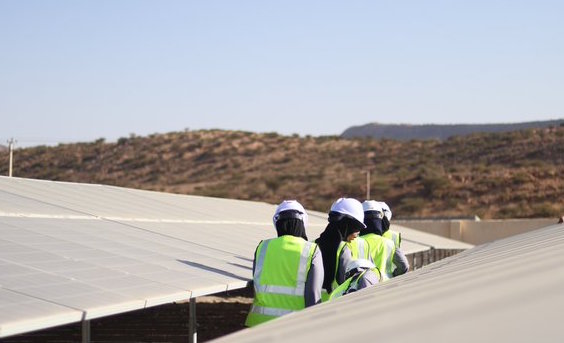Poverty and gender inequality are limiting the impact of sustainable energy on rural women, new research by energy experts Ashden has confirmed.
These challenges could prevent Kenya hitting its goal of universal energy access by 2022, warned Ashden CEO Harriet Lamb. She said the clean energy transition must take place in a way that improves the lives of women.
Every year millions of people around the world connect to clean energy via solar home systems and microgrids. But Ashden’s new research into off-grid energy and gender dynamics, carried out in Tanzania from 2017 to 2019, found many families cannot afford to power labour-saving appliances of benefit to women – and that account ownership generally lay with men. Key findings include:
- Most interaction with solar companies, from buying a system to getting training on how to fix it, was done by men.
- For most women surveyed, access to solar had not created more free time.
- With many families restricted to limited amounts of energy, women were de-prioritising their own needs over those of other family members.
- There was high demand from men and women for loans to make appliances affordable.
The research did find that a limited number of women had improved their earning potential through access to solar energy – and that many now enjoyed greater flexibility in their day, as well as the benefits of television, radio and electric lights.
Countries must tackle wider issues
Lamb said: “Countries aiming for 100% energy access must tackle the wider issues that stop women getting the full benefit of clean, modern electricity. Solar energy can have a powerful impact in poor communities, but only if products and services meet people’s needs. And even then, it won’t transform lives on its own.
“We’re calling on solar companies, politicians and NGOs to really listen to women – whether designing national policy or visiting a rural family to make a sale.”
Renewed effort in energy access is more vital than ever, as Energizing Finance – a report released this month by Sustainable Energy for All – reveals. It shows investment in sustainable energy access in Sub-Saharan Africa is weak and, in some cases, declining. Ashden has released selected findings from its own research ahead of full publication later this year.
The findings will be discussed in a workshop at the Clean Cooking Forum in Nairobi on 6 November. The workshop, led by Harriet Lamb, will feature debate and insights from sustainable energy enterprises across East Africa. It will run with support from sales consultancy Whitten & Roy Partnership.
Study methodology and funding
The study involved 1260 household surveys, 16 focus groups and 66 semi-structured interviews in the regions of Kagera and Morogoro. Field work took place between February and June 2017, and between July and August 2019.
The project was funded by Wallace Global Fund, the IKEA Foundation and the UK’s Department for International Development, with support from Institute of Development Studies. A two-part baseline/end line approach was used to develop a picture of life before solar access, then revisit the same communities once they had used it over a substantial period.






